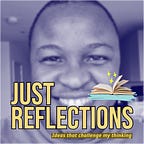This week I announced on LinkedIn that I started a new job as a Senior Software Engineer at Contentful. As expected, this was followed by many congratulations messages. Besides the congratulations, there were messages asking about how I switched from Civil Engineering to Software Engineering. I expect these messages whenever I talk about my software engineering career. What I didn’t expect was people saying things have been easy for me or asking how my things just seem to come together so easily.
So after some reflection, I think I know now what my secret is. If you don’t want to waste any more of your time reading this article, here it is:
Victories are nice, but the biggest lessons come from failure.
That’s it!
For anyone looking for further elaboration, read on.
Mindset
“The big lessons didn’t come from the trophies, they came from losing and regrouping for the next game. They came from working through differences and learning to mesh as a team. They come from doing the less exciting parts like training and practicing.” — LeBron James.
Carol Dweck, a famous American psychologist, wanted to study the different ways that children cope with challenges. So she designed an experiment where she gave 10-year-olds problems that were slightly too hard for them. Some students, when they tried and failed to solve the problem, felt absolutely frustrated and gave up citing that this is completely beyond their capability. But there were some students who responded differently. They also tried and failed to solve the problem, but they kept saying positive things like, “I love a challenge,” or, “I was hoping this would be informative.” Carol concluded that the difference between the two groups was because of differences in their mindset. She defines these two mindsets as the Growth mindset and the Fixed mindset.
The fixed mindset is the idea that all the abilities we have, our intelligence, our ability to solve problems, etc. are innate and cannot be changed. Whereas the growth mindset is the idea that everything is a skill that can be learnt and honed and improved.
Now, when we talk about abilities, there’s an element of raw talent that we can’t deny. But having a growth mindset means understanding that while there are people who are innately talented in specific things, there’s a lot of room to improve for all of us in anything that we put our minds to.
I can’t overemphasize how important this lesson has been on my learning journey. Programming is really difficult. It has a steep learning curve. Learning it on your own makes it even harder. This might be a simplistic example, but I vividly remember trying to understand what an API is. I read articles; I watched YouTube videos, but I just couldn’t wrap my mind around it. It made little sense to me. Sometimes, I’d grasp it or think I did then a little later, as if it went in one ear and out the other. I’d be completely clueless again. But I kept on because I thought surely I’m not the dumbest person who’s ever tried to learn this stuff. So if someone else could learn it then so can I. Now, the concept is so simple and obvious to me that I’m hard-pressed to understand what exactly I was struggling with.
So if you’re trying to learn something, don’t let failure make you believe that you innately don’t have the ability. Let failure be your teacher and understand that you have lots of room to grow. Develop a growth mindset and you’ll be surprised how much you can achieve.
Effort
Many people—especially those with a fixed mindset—have this perception that you should be able to do things effortlessly, and that is the mark of true genius. If something is truly your thing, then you should be able to do it with little to no effort. So if you find that you have to put a lot of effort into something, then it’s not for you. You’re not smart enough for it. You should find something else.
However, it doesn’t take too much research to discover that even the geniuses in our society achieved what they achieved through extraordinary amounts of effort. Unfortunately, those aren’t the stories that get told the most because they aren’t as interesting. Success stories filter that out. It’s much more interesting to hear that Alexander Fleming accidentally dropped mould into a petri dish, realised that it was preventing bacteria around it from growing and in a spark of genius, discovered penicillin, than to hear that the moment was preceded by years of research, failed experiments and tireless effort. Here’s what LeBron James has to say:
“The preparation is more important than the competition. Those experiences that shaped me early on they taught me that being a champion isn’t about stepping up and taking big shots with everything on the line. It’s about the work you did that got you there. It’s not about the five minutes you stand on the podium, it’s about the five years you spend running sprints at 6 am. This is the mindset that says I’m going to put in the work and if I do, winning is inevitable. And if I do everything to prepare, I can live with the results, win or lose.” — LeBron James.
Don’t be scared by effort. Putting in effort is not a bad thing. We have to put in effort to get meaningful results. Think of putting in effort as being like going to the gym. The more effort you put in, the more your muscles have to strain to carry heavier loads and the stronger and more competent they become at carrying heavy loads. Your brain is similar. If something is complicated, put more effort into your studies, and find different materials and different perspectives.
I consider myself as being great at interviews, particularly behavioural interviews, where I have to talk about myself or in situations where I showed specific qualities. I don’t have an innate “good at interviews” ability and it certainly doesn’t come effortlessly. In fact, I used to be really terrible at it until I figured out that the reason I wasn’t good at it wasn’t that it didn’t come to me effortlessly. It was that I didn’t put enough effort into it. So, before interviews, I spent several hours preparing for each one, taking notes, figuring out what I want to say, what they might say, where I want the conversation to go, etc. basically doing a lot of preparation. That’s how I got good.
So put in the effort, that’s how mastery is achieved.
Process
Focus on the process, not the outcome.
“A champion’s mindset means a total focus on the present. It means I keep my head down right now and the future takes care of itself. I concentrate on what’s below my feet as I take this step, not what’s a mile down the highway.” — LeBron James.
Sure, you should have a vision of where you’re going. But along the way, do your best to stay locked in the current moment and trust that each small part of the work you’re putting in now will get you to your goal.
The second aspect of process is understanding that you will not start perfectly. Many times, when there’s a part of our life that we’re great at, that brilliance becomes an impediment to learning new things because we feel like we need to be just as good at everything else. Sure, you’re good at your business, but when you want to learn an instrument, you’ll need to start off terrible and work up to perfection. If you focus too much on the end goal, you’ll continuously be overwhelmed by how far you are from it and that will eventually take a toll on you.
Learn from failure
Next time you fail, understand that you’re not a failure. You still have room to grow and learn and be better. Then ask yourself, “what can I learn from this failure?” Take those reflections and work hard to improve yourself for the next attempt. Success is great, but often it doesn’t offer the same opportunities for self-reflection and growth that failure does. I’m not suggesting that failure is necessary, but I understand that it is inevitable, so use it to your advantage. The biggest lessons come from failure.










